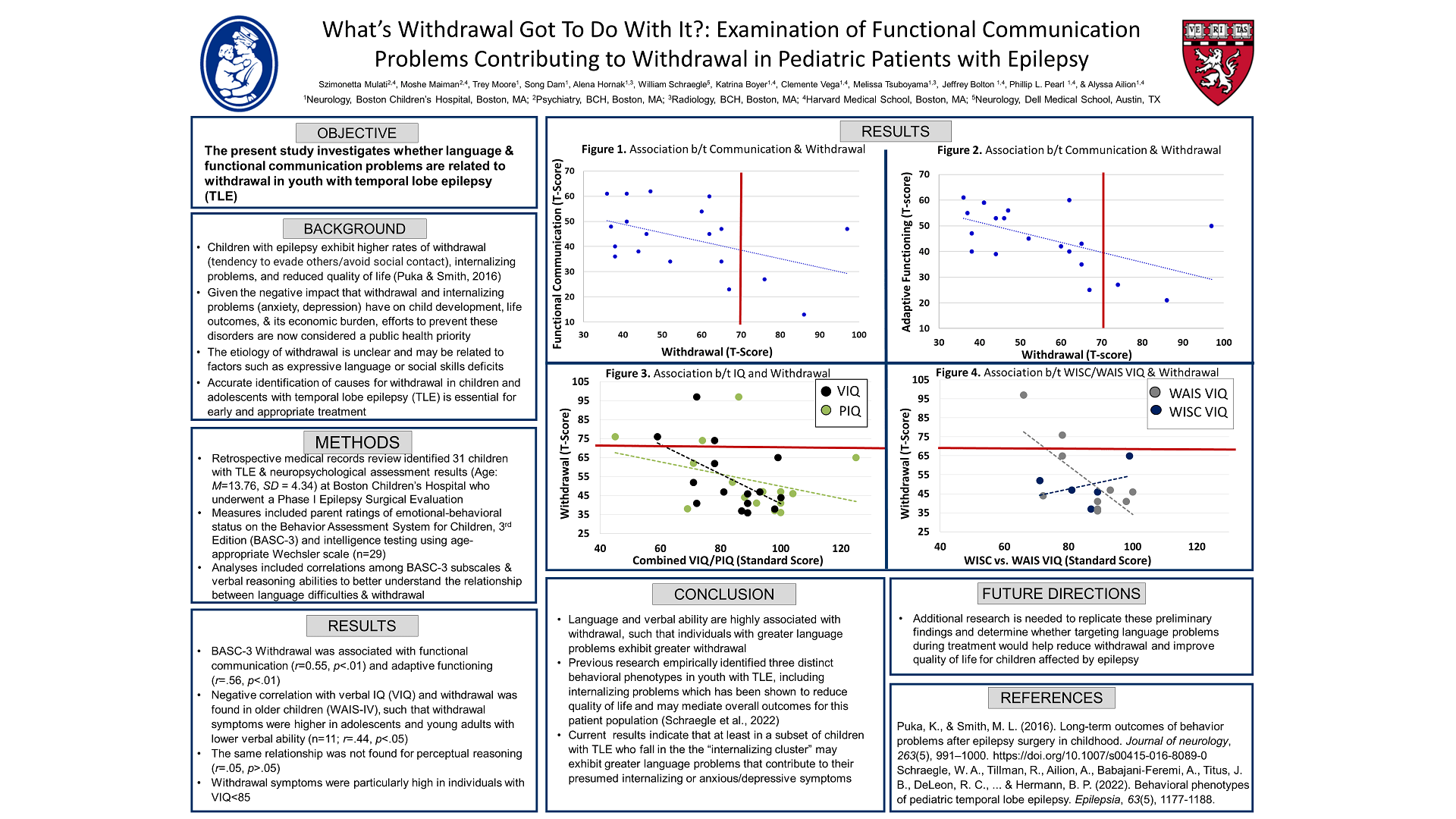Scientific Abstract
Background: Children with epilepsy exhibit higher rates of withdrawal, internalizing problems, and reduced quality of life [1]. The etiology of withdrawal is unclear and may be related to factors such as expressive language deficits. The present study investigates whether language and functional communication problems may be related to withdrawal in youth with temporal lobe epilepsy (TLE) to ultimately cater intervention services to improve quality of life.
Methods: Retrospective medical records review identified 31 children with TLE and neuropsychological assessment (Age: M=13.76, SD = 4.34) at Boston Children’s Hospital who underwent a Phase I Epilepsy Surgical Evaluation. We included all patients with a completed parent ratings of emotional-behavioral status on the Behavior Assessment System for Children, 3rd Edition (BASC-3) and intelligence using the age-appropriate Wechsler scale (n=29). We investigated correlations among BASC-3 subscales and verbal reasoning abilities to better understand the relationship between language difficulties and withdrawal.
Results: Pearson correlation indicated significant correlations among BASC-3 subscales. Withdrawal was associated with functional communication (r=0.55, p<.01) and adaptive functioning (r=.56, p<.01). We found a negative correlation with verbal IQ (VIQ) and withdrawal in older children (WAIS-IV), such that withdrawal symptoms were higher in adolescents and young adults with lower verbal ability (n=11; r=.44, p<.05). The same relationship was not found for perceptual reasoning (r=.05, p>.05). Withdrawal symptoms were particularly high in individuals with VIQ<85.
Conclusions: Our results indicate that verbal ability is highly associated with withdrawal, such that individuals with greater language problems exhibit greater withdrawal. Current results suggest that targeting language problems during treatment may help reduce withdrawal and improve quality of life for children affected by epilepsy.
Funding: This research was supported by the Medical Staff Organization and the Neurology Foundation at Boston Children’s Hospital. Funding was also provided through the Pediatric Epilepsy Research Foundation.
Search posters

